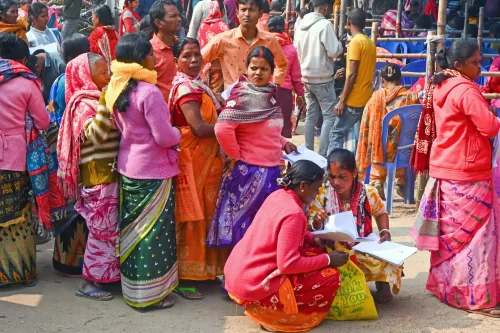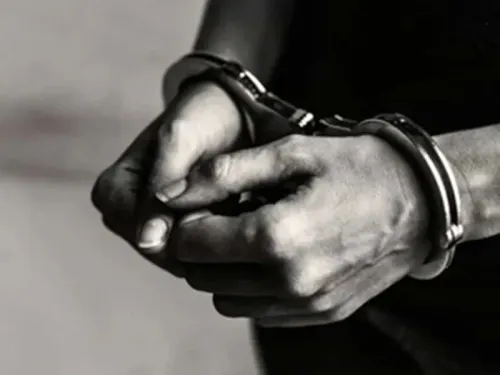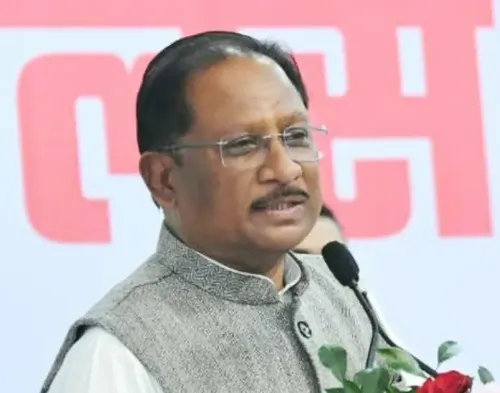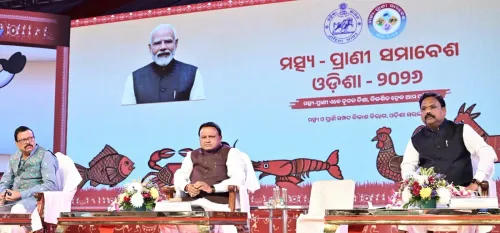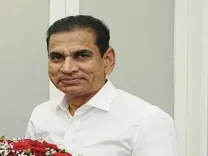Is CJI Gavai the First Buddhist to Head India's Judiciary?
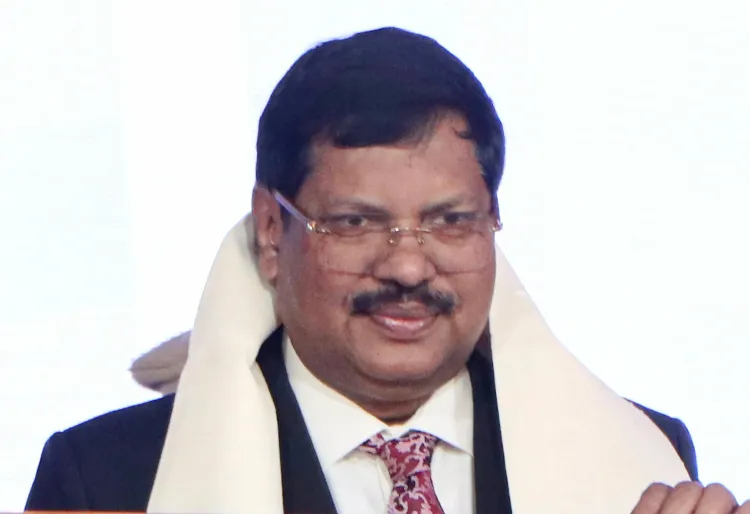
Synopsis
Key Takeaways
- Justice B.R. Gavai is the first Buddhist CJI of India.
- He has a tenure lasting until November 23, 2025.
- Gavai's career spans various roles in the judiciary and legal practice.
- He advocates for applying the creamy layer principle to SCs and STs.
- Justice Gavai emphasizes the importance of inclusivity in the judiciary.
New Delhi, May 14 (NationPress) Justice B.R. Gavai was sworn in by President Droupadi Murmu early Wednesday as the 52nd Chief Justice of India (CJI), marking a historic moment as he becomes the first Buddhist to lead the nation's judiciary.
CJI Gavai is set to serve for a tenure exceeding six months, concluding his term on November 23, 2025.
In accordance with the powers vested in Article 124(2) of the Constitution, President Murmu appointed Justice Gavai, the senior most Judge of the Supreme Court, and his appointment was later confirmed by the Ministry of Law and Justice on April 29.
Justice Gavai ascended to the Supreme Court of India on May 24, 2019.
Before his elevation, he was appointed as an Additional Judge of the Bombay High Court in November 2003 and became a permanent Judge in November 2005.
He practiced in constitutional and administrative law, serving as the Standing Counsel for the Municipal Corporation of Nagpur, Amravati Municipal Corporation, and Amravati University.
In August 1992, he took on the role of Assistant Government Pleader and Additional Public Prosecutor at the Bombay High Court, Nagpur Bench, until July 1993.
Justice Gavai was also the Government Pleader and Public Prosecutor for the Nagpur Bench starting January 17, 2000.
In a recent media interaction, he expressed his condolences regarding the tragic event in Jammu and Kashmir’s Pahalgam, highlighting the Supreme Court's connection to national mourning.
As the son of former Bihar Governor R.S. Gavai, he expressed pride in being the first Buddhist CJI in the country, stating, "My father embraced Buddhism along with Baba Saheb Ambedkar. I will be the first Buddhist Chief Justice of the country."
Justice Gavai emphasized his respect for all religions, mentioning, "I visit temples, dargahs, Jain temples, and gurudwaras."
As a member of the 7-judge Constitution Bench, Justice Gavai addressed the question of sub-classification within reserved categories for affirmative action, advocating for the application of the creamy layer principle to Scheduled Castes (SCs) and Scheduled Tribes (STs).
In his opinion, he stated, "If the 9-Judge Bench in Indra Sawhney determined that this principle would advance equality for Other Backward Classes, why shouldn't it apply to SCs and STs?"
He posed a critical question: "Can the child of an IAS/IPS officer be equated with a child from a disadvantaged SC family studying in a village school?"
Justice Gavai articulated that grouping children of SCs and STs who have benefited from reservations alongside those still facing socio-economic challenges undermines the constitutional intention.


